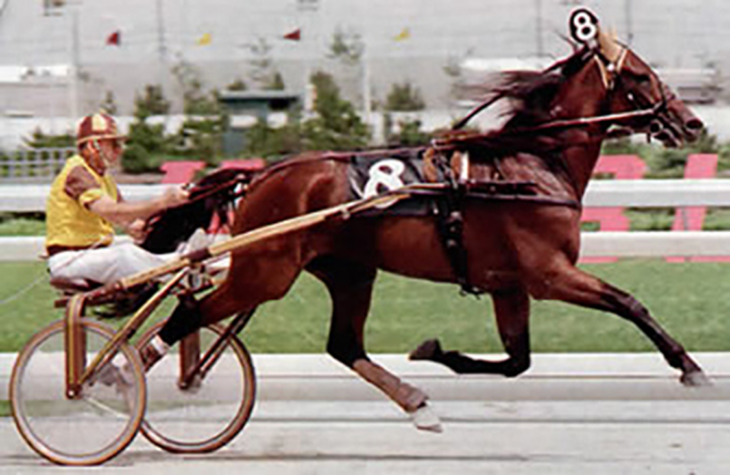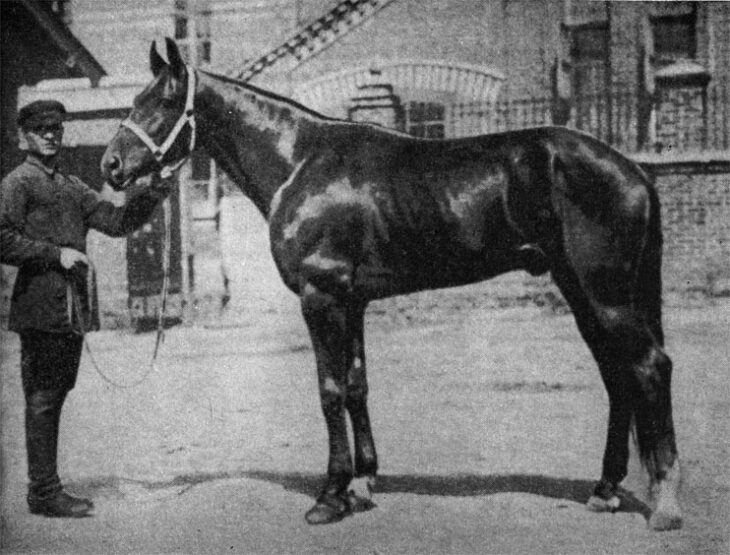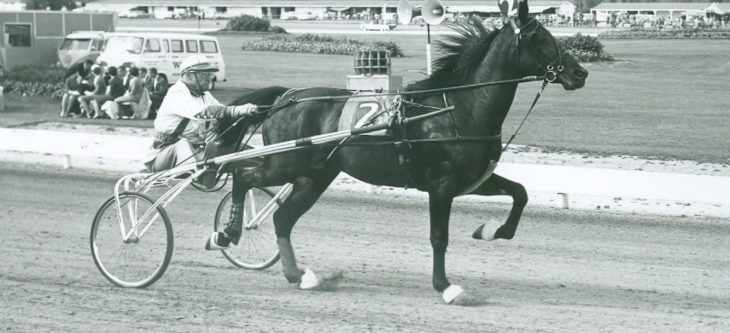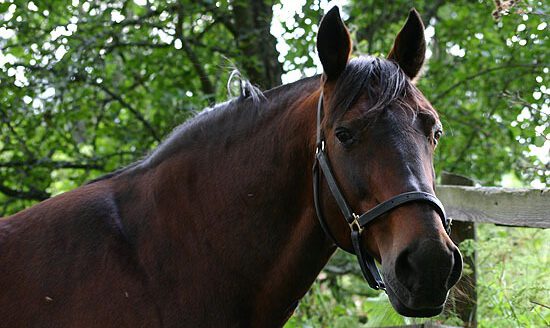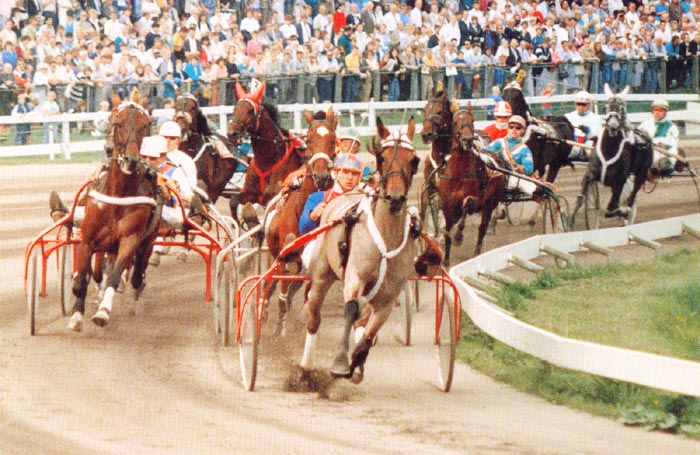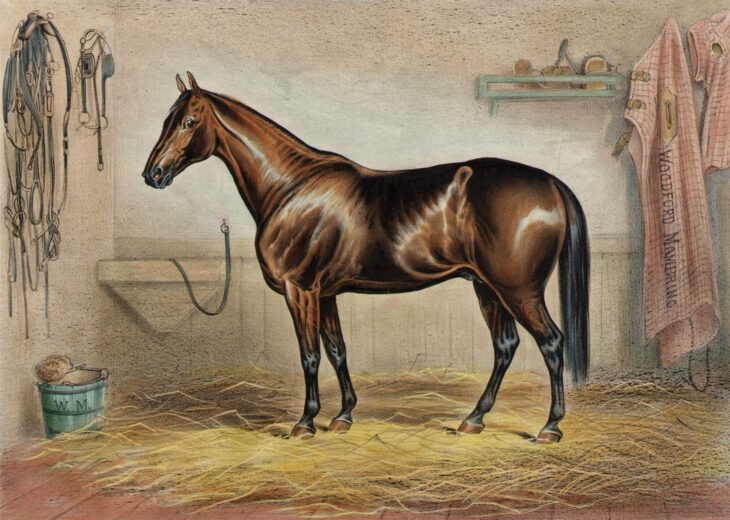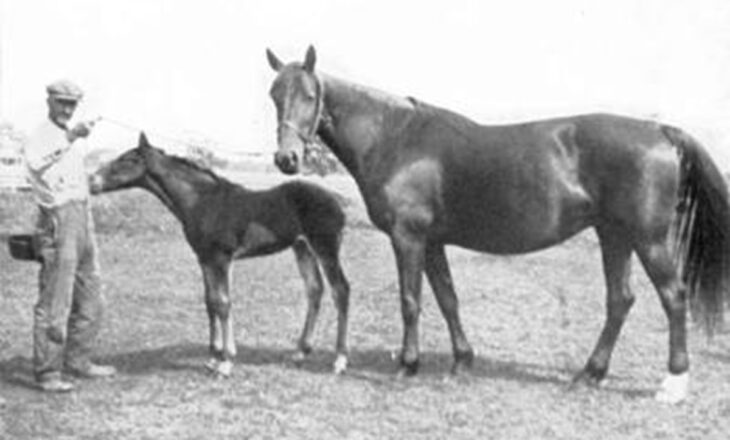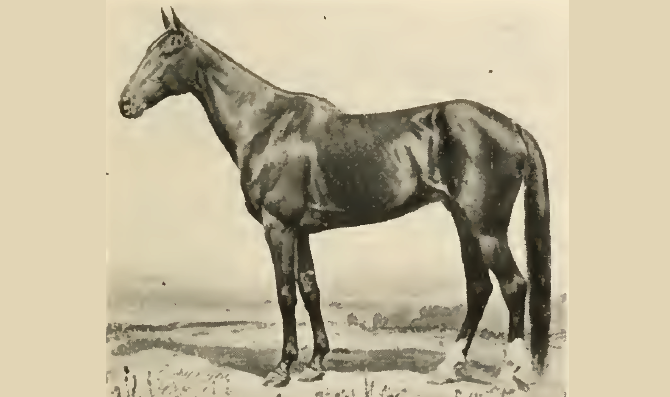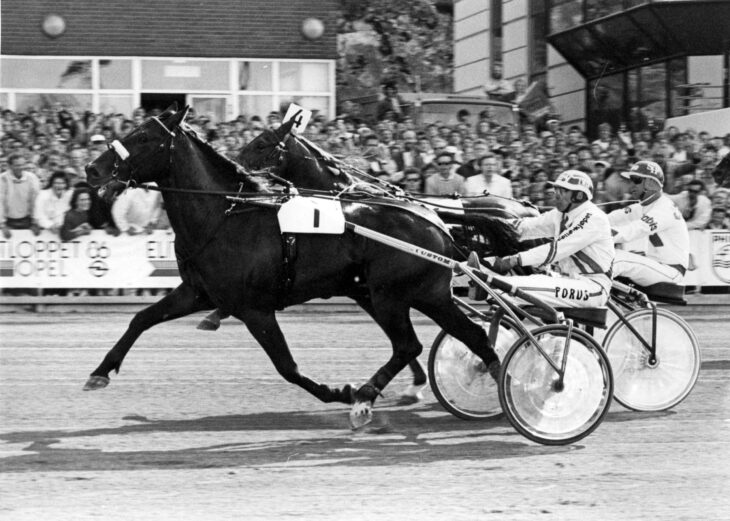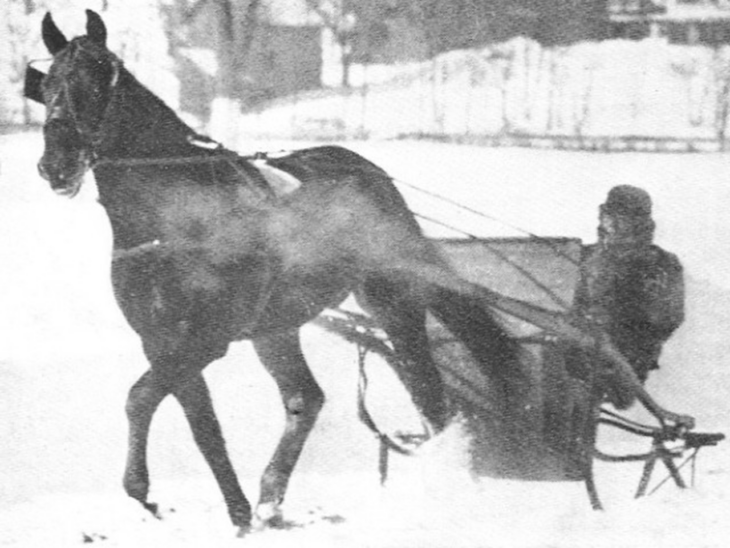An exceptionally fast trotter with soundness problems and chronic mental issues, Arndon sometimes posed a huge challenge to his legendary trainer. But when he did what he was supposed to he was a terrifyingly good trotter – and the first three-year-old to trot in 1:54.
Read MoreThe first World War took an especially heavy toll on Ukraine as well as the Russian Empire as almost all horses perished. One US import survived, however, and after the war gave birth to one of a good trotters who turned out to be one of the best stallions ever seen in Eastern Europe. While he was very good on the tracks, as a stallion Gildeets dominated Soviet trotting for many years.
Read MoreAn exceptional racehorse at 2, BF Coaltown was then set back by virus infection a month ahead of hte Hambletonian which he seemingly never really recovered from. The Ohio-born stallion went on to exceed all expectations at stud when he became one of the best stallions ever seen in his home state.
Read MoreWhen Juhani Lagerstam started the Laukko trotting stud farm at Vesilahti in Finland he needed a few stallions to use on his many broodmares. The first stallion bought was Super Male, a very average stallion, but the second purchase, Choctaw Brave, imported to the land of the thousand lakes in 1981, changed absolutely everything.
Read MoreHer breeders bought a mare they didn’t really want at auction, and didn’t even know she was in foal to an unpopular sire. The resulting filly was stubborn and difficult to break. However, when she first started trotting, the filly did nothing else – and usually faster than everybody else. From humble beginnings in the north of Netherlands, Action Skoatter gained worldwide recognition in the 1988 Elitlopp for both her looks and her whirlwind speed.
Read MoreHe had a downright weird racing career, not competing regularly until he was 15. There he showed glimpses of brilliance despite an injury that just kept getting worse. Kept at stud for most of his life, but relatively unsupported by his famous owner, Woodford Mambrino was one of the more impressive stallions of the 19th century America.
Read MoreThe first dam of three 2:05 trotters, her mating was the result of chance. Even though Nervolo Belle was never even trained, she went on to achieve fame as a broodmare and also produced one of harness racing’s biggest names in Peter Volo.
Read MoreHe was the milk horse who turned into a world champion, but was treated badly as he was a tough cookie. Because of the treatment he received St Julien hated his trainer and driver, but the duo still worked well enough together to lower the world record three times.
Read MoreThroughout history there have been a few select horses that have singlehandedly increased the interest in harness racing and drawn people to the tracks like never before. One of the most important such horses is Rex Rodney, the Norwegian rags-to-riches story who started his career without a victory at 3 but ended up winning one of the world’s biggest races. A horse with no apparent pedigree to talk of and who did not even break the 2:00 (1.14,6) barrier until he was 6 years old, he eventually became a household name all over Norway and Scandinavia.
Read MoreHe was talented but a contagious virus ruined his three-year-old season. Being sold to Europe got Bulwark’s career back on track but it was as a stallion he became truly legendary. Despite a relatively limited number of foals, the colt completely dominated the stallion ranks in his new home country.
Read More
